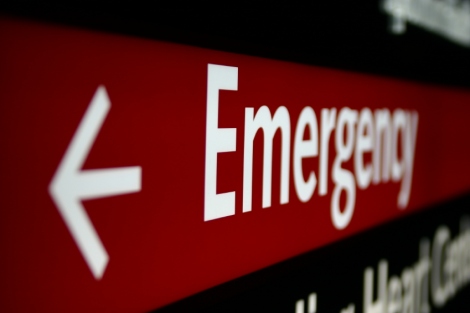Top Avoidable Emergency Room Visits: Alcohol, Dental Issues and Depression
Gaps in Dental and Mental Health Care Lead Patients to Seek ER Help
 Alcohol abuse, dental conditions and depression were among the top causes of avoidable emergency room visits nationally, according to a new UC San Francisco study which stressed that emergency departments are often ill-prepared to handle such conditions.
Alcohol abuse, dental conditions and depression were among the top causes of avoidable emergency room visits nationally, according to a new UC San Francisco study which stressed that emergency departments are often ill-prepared to handle such conditions.
The researchers found that nearly 14 million ER visits, or about 3.3 percent of all visits over a seven-year period, led to patients being discharged home without any care being administered, and therefore could have been avoided.
The study found that the primary reasons for avoidable visits were toothache, back pain, headache, throat soreness, and issues related to psychosis. The authors note that emergency departments are designed to treat patients in immediate physical danger, not to provide specialty or long-term care.
“Our study used a conservative definition of ‘avoidable’ to help physicians, policymakers, and even insurance providers get a better picture of truly avoidable emergency department visits,” said lead author Renee Y. Hsia, MD, MSc, a UCSF professor of emergency medicine and health policy. “We found that many of the common conditions of avoidable visits are mental and dental health-related, which emergency departments are generally ill-equipped to treat, suggesting a lack of access to health care rather than intentional inappropriate use.”

The study comes amidst several health insurers in a handful of states that are threatening to crack down on reimbursements for ER visits that they consider “inappropriate” or avoidable.
The analysis, published in the International Journal for Quality in Health Care, drew upon data representing some 424 million emergency department visits in the United States from 2005 to 2011.
The analysis examined emergency department visits by patients 18 to 64 years old using data from the National Hospital Ambulatory Medical Care Survey, a national survey conducted by the National Center for Health Statistics. The researchers defined “avoidable” visits as those involving patients who were discharged home without requiring any procedures, medications, or diagnostic tests such as x-rays, CT scans, or blood tests. The study excluded patients that were hospitalized, admitted for observation, or transferred to other locations.
The majority of mental- and dental-related visits required some form of treatment or diagnostic service. Still, the authors found that nearly 17 percent of all visits for mood-related disorders, such as depression and anxiety, were avoidable, as were 10.4 percent of all alcohol-related visits, and nearly 5 percent of all dental-related visits. The researchers also noted that 14 percent of avoidable visits were made by ambulance.
Such avoidable visits could be reduced by increasing access to dental and mental health facilities, said the authors.
“It should not be assumed that emergency departments are inappropriate for all patients with these conditions,” said Hsia. “However, our findings suggest that policy initiatives could alleviate pressure on emergency departments by addressing gaps in dental and mental health care in the U.S., which could provide treatment to this group of visitors at a lower cost elsewhere.”
The other author of the paper is Matthew Niedzwiecki, PhD, an assistant professor of emergency medicine at UCSF and the Philip R. Lee Institute for Health Policy Studies.
UC San Francisco (UCSF) is a leading university dedicated to promoting health worldwide through advanced biomedical research, graduate-level education in the life sciences and health professions, and excellence in patient care. It includes top-ranked graduate schools of dentistry, medicine, nursing and pharmacy; a graduate division with nationally renowned programs in basic, biomedical, translational and population sciences; and a preeminent biomedical research enterprise. It also includes UCSF Health, which comprises three top-ranked hospitals, UCSF Medical Center and UCSF Benioff Children’s Hospitals in San Francisco and Oakland, and other partner and affiliated hospitals and healthcare providers throughout the Bay Area.